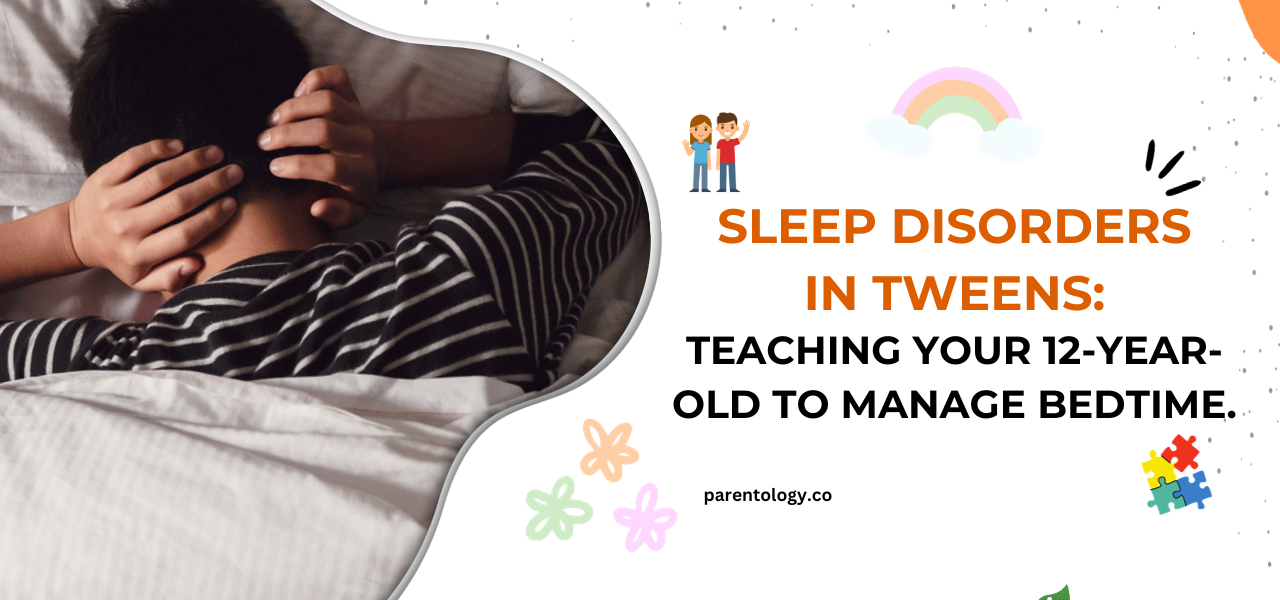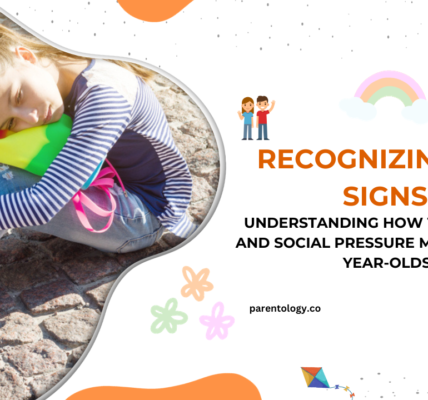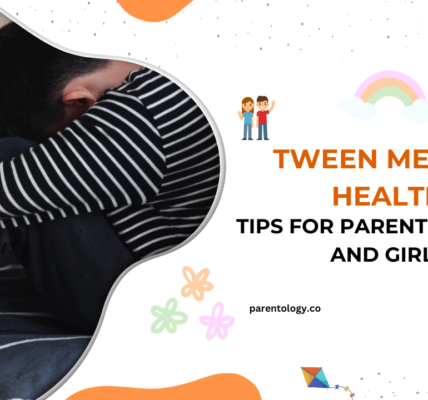What Time Should a 12-Year-Old Go to Bed? Understanding Sleep Disorders in Tweens
As parents, guiding your 12-year-old through a healthy sleep routine can be challenging, especially when considering the optimal bedtime. Adolescents’ sleep patterns undergo significant changes, often leading to various sleep disorders that may affect their physical and mental well-being. Understanding the importance of adequate sleep and managing sleep disorders is crucial for your tween’s overall health and also should know what time should a 12 year old go to bed.
The Significance of Sleep for Tweens
Sleep plays a pivotal role in a tween’s growth and development. It not only rejuvenates their bodies but also aids in cognitive functions, memory consolidation, and emotional regulation. However, finding the right bedtime for a 12-year-old is essential to ensure they get the recommended amount of sleep.
What Time Should a 12-Year-Old Go to Bed?
The National Sleep Foundation recommends that 12-year-olds get between 9 to 11 hours of sleep per night. Establishing a bedtime routine that allows your child to wake up feeling refreshed is key. Generally, a bedtime between 8:00 PM to 9:30 PM provides adequate rest for most tweens.
Factors such as school start times, extracurricular activities, and individual sleep needs can influence the ideal bedtime for your child. Observing their behavior, mood, and energy levels during the day can help determine if they’re getting sufficient sleep.
Managing Bedtime for Tweens
Determining the Right Bedtime
Choosing an appropriate bedtime involves considering both physiological and lifestyle factors:
- School Schedule: Align bedtime with the school schedule to ensure your child is well-rested for the next day.
- Individual Needs: Some tweens may function better with an earlier bedtime, while others may thrive with a slightly later one.
Creating a Relaxing Bedtime Routine
Establishing a calming routine enhances sleep quality:
- Limit Screen Time: Reduce exposure to screens at least an hour before bedtime to promote melatonin production.
- Reading Time: Encourage reading as part of the routine, fostering relaxation.
- Comfortable Environment: Ensure the bedroom is conducive to sleep with comfortable bedding and a cool, dark atmosphere.
Addressing Sleep Disorders in Tweens
Recognizing signs of sleep disorders is crucial for timely intervention:
- Common Sleep Disorders: Insomnia, sleep apnea, and restless legs syndrome can affect tweens.
- Consulting a Specialist: If sleep disturbances persist, consult a pediatrician or sleep specialist for a thorough evaluation.
Managing Sleep Disorders in Tweens
Understanding Common Sleep Disorders
Various sleep disorders can affect tweens, including:
- Insomnia: Difficulty falling asleep or staying asleep.
- Sleep Apnea: Breathing interruptions during sleep.
- Delayed Sleep Phase Disorder: Shifted sleep-wake cycles, leading to later bedtimes and wake times.
- Restless Legs Syndrome: Uncomfortable sensations in the legs, causing an urge to move them during rest.
7 Strategies for Establishing of What Time should a 12 Year Old Go to Bed
1. Know Your Child’s Circadian Rhythm
Understanding your child’s natural sleep-wake cycle aids in setting an appropriate bedtime.
2. Gradual Adjustments
If transitioning to a new bedtime, make adjustments gradually to allow the body to adapt the new time.
3. Consistent Bedtime Routine
Establish a consistent bedtime routine to signal the body that it’s time to go to sleep.
4. Avoid Stimulants Before Bed
Limit caffeine intake and avoid stimulating activities close to bedtime.
5. Create a Comfortable Sleep Environment
Ensure the bedroom is conducive to sleep with a comfortable mattress, pillows, and proper ventilation.
6. Monitor Screen Time
Limit exposure to screens before bedtime to prevent disruptions in the sleep and wake cycle.
7. Encourage Physical Activity
Regular exercise contributes to better sleep, but avoid vigorous activities close to bedtime.
Addressing Unique Sleep Challenges in Tweens
Hormonal Changes and Sleep
The onset of puberty brings about hormonal shifts that can impact a tween’s sleep schedule. Changes in the body’s internal clock, known as the circadian rhythm, may cause tweens to feel more alert later in the evening, leading to difficulty falling asleep at an earlier bedtime.
Academic Demands and Sleep Pressure
Increased academic demands, extracurricular activities, and social engagements can create a hectic schedule for tweens, often cutting into their sleep time. Balancing these commitments while ensuring adequate rest becomes a delicate task for both children and parents.
Collaborative Strategies for Improved Sleep
Open Communication
If you want to know what time should a 12 year old go to bed, then you must your tweens, have to encourage open discussions with your tween about the importance of sleep. Listening to their concerns and experiences with sleep-related issues fosters a sense of understanding and support.
Limit Caffeine Intake
Reducing or eliminating caffeine consumption, especially in the afternoon and evening, can help tweens fall asleep more easily and improve sleep quality.
Seek Professional Guidance
If sleep disturbances persist or worsen, consulting a pediatrician or a sleep specialist is crucial. They can provide valuable insights, conduct assessments, and recommend appropriate interventions tailored to your child’s needs.
Embracing Technology for Better Sleep
Sleep-Tracking Apps
Utilize technology to your advantage by exploring sleep-tracking apps designed specifically for tweens to know what time should a 12 year old go to bed. These apps can help monitor sleep patterns and provide insights into potential areas for improvement.
Sleep Education Programs
Online resources and sleep education programs offer valuable information and tips on fostering healthy sleep habits in tweens. These platforms often provide interactive tools and engaging content to make learning about sleep enjoyable for children.
Exploring Cognitive-Behavioral Techniques
Cognitive-Behavioral Therapy for Insomnia (CBT-I)
CBT-I is an evidence-based therapy effective in treating insomnia. It focuses on identifying and changing behaviors or thoughts that contribute to sleep problems. This therapy involves techniques like stimulus control, sleep restriction, and relaxation training to improve sleep quality.
Mindfulness and Meditation
Introducing mindfulness practices or meditation to your tween’s routine can help reduce stress and anxiety, often contributing to sleep disturbances. Guided meditation or mindfulness apps can assist in teaching relaxation techniques beneficial for better sleep.
The Role of Parental Involvement
Setting Boundaries on Electronics
Establishing rules on screen time, especially before bedtime, is crucial. Limiting exposure to screens can aid in regulating the body’s natural sleep-wake cycle by minimizing the disruption caused by blue light emitted from electronic devices.
Supportive Sleep Environment
Ensuring that your tween’s sleeping space is comfortable, including a supportive mattress, suitable pillows, and adequate room temperature, is essential for quality sleep.
Encouraging Wind-Down Activities
Encourage calming activities an hour before bedtime, such as reading a book together or engaging in light conversation. This wind-down period helps signal to the body that it’s time to relax and prepare for sleep.
Empowering Tweens with Sleep Education
Sleep Hygiene Education
Educating 12 years old tweens about what time should a 12 year old go to bed, the importance of sleep hygiene, including consistent sleep schedules, avoiding caffeine, and creating a relaxing bedtime routine, empowers them to take an active role in managing their sleep.
Involving Tweens in Decision-Making
Involve your tween in discussions about their sleep schedule. Encourage them to express their preferences while guiding them towards healthy choices that promote better sleep.
Addressing Specific Sleep Disorders in Tweens
Sleep Apnea in Tweens
Sleep apnea, characterized by pauses in breathing during sleep, can affect tweens. Symptoms may include snoring, restless sleep, and daytime fatigue. Consulting a healthcare professional is essential for proper diagnosis and treatment.
Restless Legs Syndrome (RLS)
RLS can cause uncomfortable sensations in the legs, leading to an urge to move them. Encourage relaxation techniques and consult a healthcare provider for management strategies tailored to your tween’s needs.
Understanding External Influences on Sleep
Peer Pressure and Sleep Habits
Peer interactions and social activities can sometimes interfere with a tween’s sleep schedule. Encourage open communication to strike a balance between social engagements and adequate sleep.
School Start Times and Sleep Needs
Advocating for later school start times, where feasible, aligns with the natural sleep patterns of tweens, allowing them to get the recommended amount of sleep.
Harnessing Supportive Resources
School-Based Sleep Education Programs
Schools implementing sleep education programs can contribute significantly to tweens’ understanding of the importance of sleep and the adoption of healthy sleep practices.
Parental Support Groups
Joining support groups or online communities for parents dealing with sleep-related issues in tweens can provide valuable insights, support, and shared experiences.
Emphasizing Consistency and Patience
Adapting to Changing Sleep Needs
Recognize that your tween’s sleep needs may fluctuate as they grow and experience different stages of development. Be adaptable and open to adjusting sleep routines accordingly and make understand your tween what time should a 12 year old go to bed.
Celebrating Progress
Acknowledge and celebrate small victories in improving sleep habits. Positive reinforcement motivates tweens and fosters a sense of accomplishment.
Advanced Strategies for Managing Sleep Disorders
Chronotherapy
Chronotherapy involves gradually adjusting bedtime and wake time to shift the body’s internal clock. This technique can be beneficial for tweens experiencing delayed sleep phase disorder.
Light Therapy
Light therapy, involving exposure to bright artificial light, can help regulate sleep-wake cycles. This method may be recommended for tweens with circadian rhythm disorders.
Exploring Cognitive Techniques
Biofeedback
Biofeedback techniques, such as heart rate variability biofeedback, can assist tweens in learning to control physiological responses to stress, potentially improving sleep quality.
Cognitive Restructuring
Cognitive restructuring techniques aim to modify negative thought patterns that contribute to sleep disturbances, helping tweens manage anxiety or worries that interfere with sleep.
Lifestyle Modifications for Better Sleep
Dietary Adjustments
Encourage a balanced diet, avoiding heavy or stimulating meals close to bedtime. Certain foods, like those rich in tryptophan (found in dairy or turkey), may promote relaxation.
Herbal Supplements
Some herbal supplements, like valerian root or chamomile tea, are believed to have mild sedative effects. However, consult a healthcare provider before introducing supplements to your tween’s routine.
Supporting Healthy Sleep Habits Continuously
Encouraging Journaling
Encourage your tween to keep a sleep journal, noting bedtime routines, sleep quality, and factors affecting sleep. This helps identify patterns and triggers for sleep disturbances.
Consistent Sleep and Wake Times
Maintain consistent sleep and wake times, even on weekends, to reinforce the body’s internal clock and support better sleep patterns.
Collaborating with Healthcare Professionals
Sleep Studies
In cases where sleep disorders persist, a healthcare provider may recommend a sleep study (polysomnography) to monitor and evaluate your tween’s sleep patterns. also you can discuss with healthcare provider on what time should a 12 year old go to bed.
Behavioral Therapy
Behavioral interventions provided by sleep specialists can offer tailored strategies and support to address specific sleep disorders in tweens.
Embracing a Holistic Approach
Stress Management Techniques
Teach tweens stress management techniques like progressive muscle relaxation, mindfulness, or yoga to promote relaxation before bedtime.
Encourage Independence in Sleep Habits
Guide your tween in taking responsibility for their sleep routines. Empowering them fosters a sense of autonomy and accountability.
FAQs On What Time Should a 12 Year Old Go to Bed
Q1. What are the consequences of insufficient sleep in 12-year-olds?
Insufficient sleep can lead to mood swings, decreased academic performance, weakened immune system, and increased risk of obesity.
Q2. How can parents help their 12-year-olds manage sleep disorders?
Parents can promote healthy sleep hygiene, seek medical advice if necessary, and maintain open communication with their child about sleep-related concerns.
Q3. Is it normal for 12-year-olds to experience changes in their sleep patterns?
Yes, it’s common for tweens to experience shifts in sleep patterns due to biological changes and lifestyle factors.
Q4. How important is a consistent bedtime for 12-year-olds?
Consistency in bedtime helps regulate the body’s internal clock, promoting better sleep quality and overall well-being.
Q5. Can excessive screen time affect a tween’s sleep?
Yes, exposure to screens before bedtime can disrupt sleep patterns due to the blue light emitted by electronic devices, affecting the production of melatonin.
Q6. Are there relaxation techniques that can help tweens fall asleep faster?
Yes, deep breathing exercises, progressive muscle relaxation, and guided imagery techniques can aid in promoting relaxation before bedtime.
Q7. Should naps be encouraged for 12-year-olds?
Short naps (20-30 minutes) can be beneficial if your tween is sleep-deprived. However, longer naps may interfere with nighttime sleep.
Q8. Can dietary changes affect sleep in tweens?
Certain foods and drinks, like heavy meals, sugary snacks, and caffeinated beverages, close to bedtime can disrupt sleep. Encouraging a balanced diet can positively impact sleep quality.
Q9. What role does a parent’s bedtime routine play in a tween’s sleep habits?
Modeling healthy sleep behaviors and maintaining a consistent bedtime routine yourself can positively influence your tween’s sleep habits.
Q10. Are there natural remedies to help tweens with sleep disorders?
Natural remedies such as creating a soothing sleep environment, using aromatherapy, and establishing calming bedtime rituals can aid in managing sleep disorders in tweens.
Conclusion
Recognizing the significance of sleep and addressing sleep disorders in tweens are fundamental aspects of their well-being. As a parent, actively engaging in your tween’s sleep routine, understanding what time should a 12 year old go to bed along with their unique challenges, and implementing strategies to promote healthy sleep habits can significantly impact their overall health and development.
Remember, while setting a consistent bedtime is crucial, it’s equally important to approach sleep issues with patience and understanding. Each child is different, and finding the right balance may require time and experimentation.
By prioritizing your tween’s sleep and implementing effective strategies, you empower them to manage their sleep disorders, ensuring they lead healthier, happier lives.
For further insights on parenting and children’s well-being, visit Parentology.co. Taking a proactive approach to understanding and managing sleep in tweens is a crucial aspect of their overall health and development.





